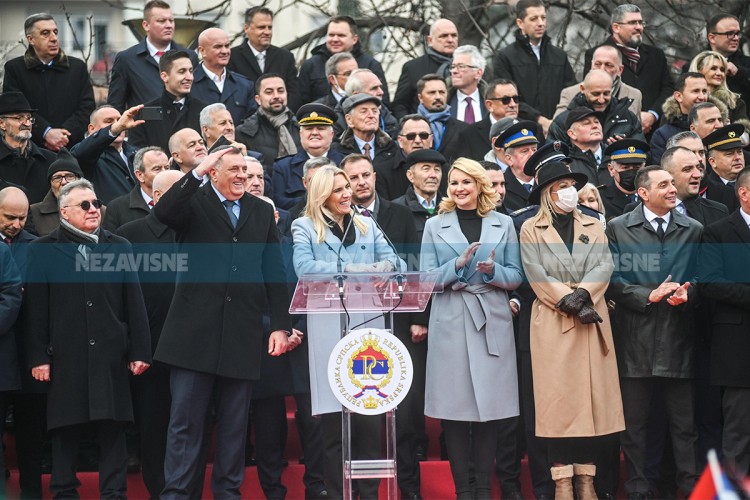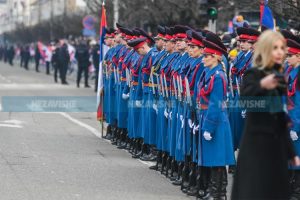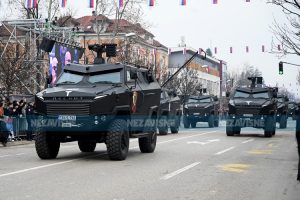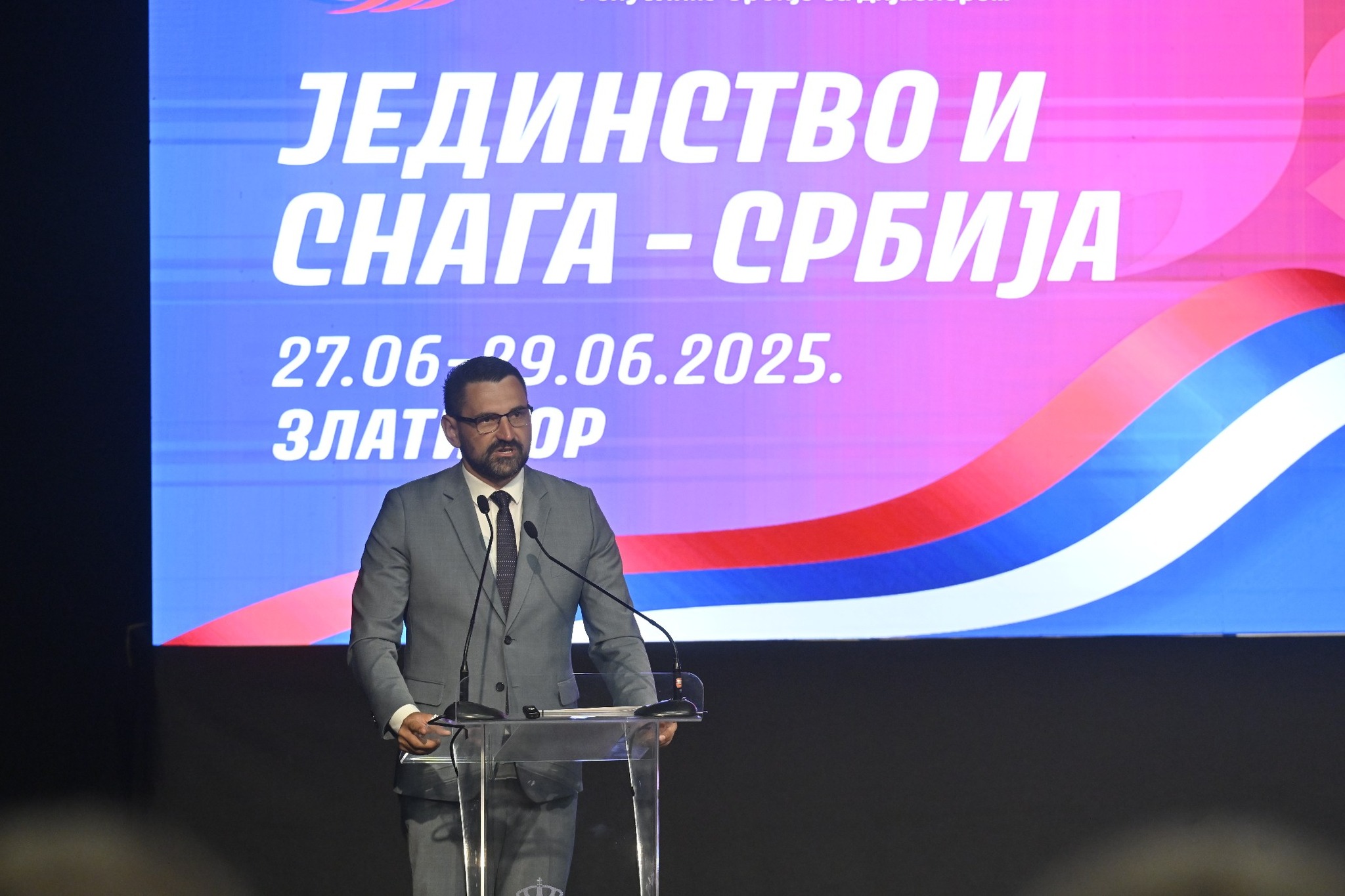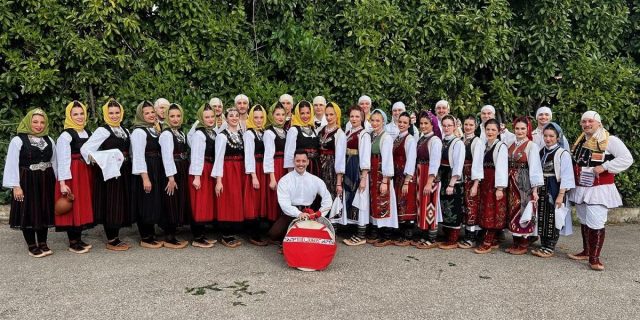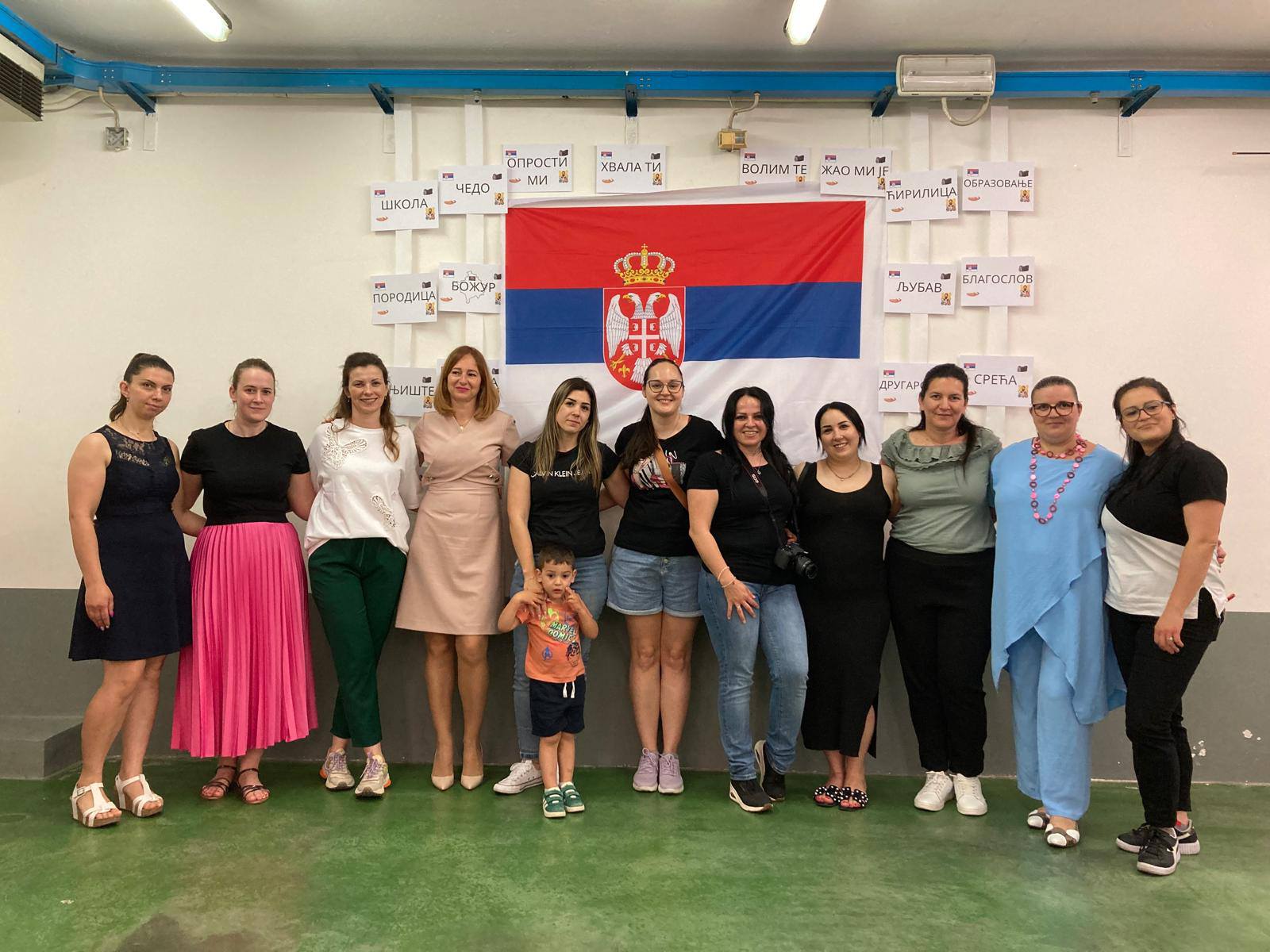The freedom of Serbs is not to the detriment of others, the gathering around the Republic of Srpska is not spite, but realization of a dream, and most importantly, behind it all is the people who will never give up the Republic of Srpska. Among other things, this was highlighted at the ceremonial parade on the occasion of the Day of the Republic and its first 30 years of existence, which was attended by a large number of citizens.
More than 2,700 participants paraded the streets of Banja Luka, including representatives of the civil sector, sports clubs, public services, and members of the Republic of Srpska Ministry of the Interior. The parade was preceded by the Holy Hierarch’s Liturgy in the Cathedral of Christ the Savior in Banja Luka served by the Serbian Patriarch Porfirije.
‘This is our first 30 years. We have always gathered on 9 January to show our commitment to living in peace, building Srpska, year after year being better, more developed, more beautiful, more advanced, and to be able each year to measure the successes achieved in the preceding period,’ said Želјka Cvijanović, the President of the Republic of Srpska.
As in previous years, members of the Special Anti-Terrorist Unit of the RS MoI singing the song Za Krst (For the Cross), and Despot armored vehicles manufactured in the company Tehnički Remont Bratunac received the most attention, applause and ovations in the parade, while the boys and girls from sports federations in the Republic of Srpska garnered the most affection.
‘Our freedom is not to the detriment of others, it is our right. We intend to live in freedom and to provide it to others,’ said Milorad Dodik, member of the Presidency of Bosnia and Herzegovina, noting that the Republic of Srpska was a state regardless of anyone’s views and disputes.
CEREMONIAL ACADEMY: On the occasion of the Republic Day, a ceremonial academy was held in the Banja Luka Borik hall on the eve of 9 January, where it was pointed out that even today, 30 years since its founding, the Republic of Srpska was fighting to preserve what the great powers had recognized after the end of the war, and to which the Republic of Srpska itself had put its signature.
‘The Republic of Srpska was created mostly out of fear of the genocide we had survived in the Second World War happening again for the second time in the same century, when we had been completely unprotected, without a state behind us, taken to death camps not far from here, in pits, in Drina, and being killed in the most monstrous ways,’ said Dodik at the ceremonial academy, at the same time emphasizing that each of the first 30 years of the Republic of Srpska had been historical.
During the ceremonial academy, it was pointed out that the Republic of Srpska had the right to territory, had the people and functional authorities, and strived for the independence enshrined in the Constitution of BiH, and if that was not possible, affirmation of the right to self-determination and independence was not excluded.
Ana Brnabić, the Prime Minister of Serbia, said that the Republic of Srpska remained a reflection of a centuries-old dream, and an indicator of how determined the Serbian people were to prevent the recurrence of Second World War crimes aimed at complete destruction of the Serbian people in this area. ‘The Republic of Srpska was formed to defend itself from that evil, which came a little later, that same year,’ Brnabić said, emphasizing that those in Serbia had to be the first to defend Srpska because it had originated from the desire for peace, freedom and the desire to not have the crimes repeated.
What was pointed out several times is that peace must be preserved at all costs, as well as identity and freedom, and in order to understand each other, as Patriarch Porfirije said, it is necessary to talk, first with each other and then with others. ‘That dialogue should be without harsh hurtful words, because there are many who have been hurt on all sides,’ Porfirije said.
As in previous years, it was emphasized that the Republic of Srpska had been created on 9 January 1992, months before the first armed conflicts in Bosnia and Herzegovina, that this was a historical fact, and that despite the disputes, it would continue to celebrate its birthday because identity traits were not subject to review.
‘We remember with special piety those who gave their lives defending the Republic of Srpska, their homes and families. We owe them eternal gratitude, as well as persistent struggle for a better future and preservation of the Republic, into whose foundations they built their most valuable possession,’ said Cvijanović.
DECORATIONS: On the occasion of the Republic Day and its first 30 years, the President of the Republic of Srpska decorated numerous individuals and collectives, including Ivica Dačić, President of the Serbian Parliament, who was awarded the Order of the Republic of Srpska on the ribbon for work and extraordinary merits in international cooperation and peace consolidation, and contribution to the development of overall relations between Serbia and the Republic of Srpska.
Also, Serbian ambassador to the USA Marko Đurić was awarded the Order of Nјegoš of the Third Class, and Bratislav Gašić, director of the Security and Information Agency (BIA), received the Order of Njegoš of the First Class. In addition to them, decorations were awarded to numerous institutions and individuals who have contributed to economic, political, societal and business growth and development, as well as to health, social, cultural, sports and other forms of progress of the entire society.
Source and photo: Nezavisne Novine


